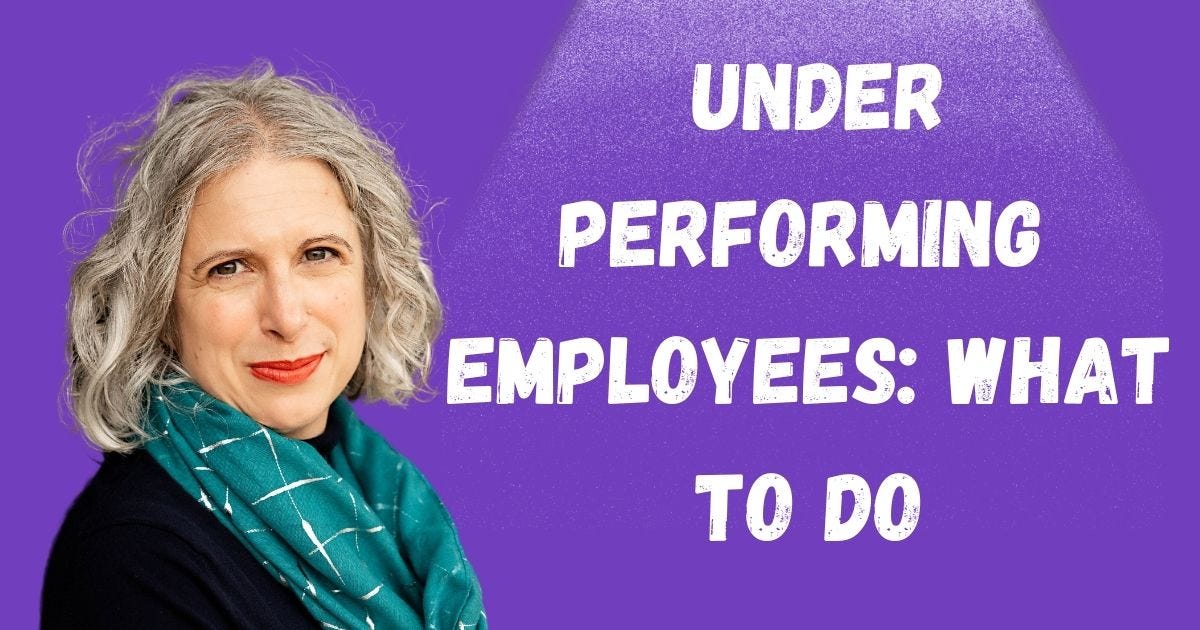Welcome to a free edition of Start Up To Grown Up: Your source for ideas, insights and tactics to take back control of your business and scale it sustainably and profitably by Heather Townsend, award-winning author of The Accountants’ Millionaires’ Club and Founder of The Accountants’ Growth Club
With the benefit of hindsight, I’ve realised that there is one key skill that has held me back as a small business owner.
If scaling my business was about winning and servicing work, I’d be, as they would say in Only Fools And Horses, “this time next year, Rodders, I’ll be a millionaire.”
But it’s not just about winning and servicing work. I’m also juggling the role of CEO, Practice Manager and People Manager. Whilst the Practice Manager role has now mostly been taken off my hands by my team (thank goodness). That still leaves the role of People Manager.
By the way, I’m not alone here. There isn’t a good all-rounder small business owner who is strong at all the responsibilities that come with the role. We all have our preferences, strengths and weaknesses.
It turns out that I work best with self-starters who don’t need much direction and like working hard and doing their best. Sadly, those seem to be in short supply. When I do find this individual, they then stay with me for years, and I trust them explicitly. The problem is that most of my former team members haven’t been self-starters. They also haven’t been able to read my mind. And yes, the inevitable has happened: their performance has dipped. I’m ashamed to say that for the most part, I’ve never entirely managed to turn them around after their performance has dipped. And when that team member's performance dips, it adds another layer of stress to an already demanding job.
I get it. I've been there myself. You're working hard to grow and scale your business. The last thing you need is a team member who isn't pulling their weight. After all, your team members should be taking work off you rather than giving you more work. It turns out that teaching people the theory of people management and helping organisations sort out their people management does not guarantee success as a people manager!
The problem is, as small businesses evolve, owners - particularly in knowledge worker type businesses - often find themselves caught between the day-to-day client work and then trying to do everything else that comes with the challenges of scaling. This can make it difficult to spot performance issues early on. You're busy "working in" the business, leaving little time to "work on" it. And probably more importantly, if you are like me, you naively trust that your team members will do a proper job in the time available.
That’s why this article will explore how to identify and tackle performance problems, allowing you to protect your business and have a calmer and more stable business.
Why addressing performance matters
If you’ve read this far, you’ve probably come to the realisation that you can no longer do everything by yourself. That means you need a team. Your team could be directly employed by you, a freelancer, or even a subcontractor. Regardless of how you formally contract with them, your team is the operational engine of your business. When one part isn't functioning correctly, particularly if your team is only a few people, it affects everything. You don’t need me to tell you that poor performance can lead to decreased productivity, missed deadlines, unhappy clients, and increased stress for you and your other employees. Until you’ve cracked people management, it can often feel like you have a revolving door of people coming into your business and then leaving before they have been with you for 2 years.
Given that you don’t have the time or money to be continually hiring and firing, the simple answer is not to let performance issues fester or allow negative behaviours to become hard-coded in your firm’s culture.
How to spot a performance problem
Sometimes, a performance issue is obvious: missed deadlines, declining sales, or constant complaints from clients. However, it's often more subtle. Here are some signs to watch for:
Unclear expectations
It sounds simple, but are you crystal clear about what you expect from your team?
This includes:
Job descriptions
Performance objectives
Key performance indicators (KPIs)
Regular chats about targets and results
Without these, it's really difficult to identify if it's a performance problem or a management problem. Ask yourself: If an HR professional had a word with your team member about their performance, would they be surprised by the conversation? If the answer is yes, you need to clarify your expectations.
Words vs. actions
Does your team member say all the right things but fail to deliver results? I personally hate this when it happens. But this can happen for many reasons. We’ve sadly had this a number of times. For example, the team member who wanted to be seen as the face of The Accountants’ Growth Club and ‘Head Of Growth’ but didn’t want to be accountable for deciding and achieving a revenue target. Or the team member who kept on saying “leave it with me, I’ll get it done”. But the getting it done bit never quite happened.
As the saying goes, "actions speak louder than words". Focus on what they're actually doing and completing. Are they fulfilling all aspects of their role? Often, people will cherry-pick the tasks they enjoy and neglect the rest.
The "Dysfunctional Star"
This is someone who's brilliant at some things but causes you or your firm endless problems with their behaviour or how they go about things. They are almost always brilliant with clients. Either by being a rainmaker or they run the most significant client accounts for you. Quite reasonably, this sort of stuff makes you hesitant to tackle their negative behaviour. However, ignoring this behaviour will eventually poison your company culture, lower morale, and increase staff turnover.
In extreme cases, a dysfunctional star may even leave and take clients with them. When my former ‘Dysfunctional Star’ left, they were sure they had irrevocably harmed my business as they believed a critical mass of my clients would follow them. Thankfully, I’d been working on a contingency plan to avoid this happening!
Changes in behaviour or performance
Any sudden or gradual change in a team member's behaviour or performance should be looked into. This could include:
Decreased participation in meetings
Missed deadlines
A decline in the quality of work
Delaying tasks
A change in attitude or behaviour. For example, becoming very negative or paranoid about stuff.
It's key to have standards in place so you can monitor performance and identify issues early on. Remember, there may be personal reasons behind the change, so approach the situation with empathy and an open mind..
How to address performance problems
Ignoring a performance issue won't make it disappear; it'll likely worsen. Here's a step-by-step approach to tackling it:
Document everything: Keep records of performance, including specific examples, dates, and any feedback given. This documentation is crucial if you need to take further action.
Have a conversation: Schedule a private meeting with the team member. Be clear and specific about your concerns, providing examples from your documentation. Focus on the behaviour or performance, not the person.
Listen actively: Allow the team member to explain their perspective. There may be underlying issues you're unaware of.
Set clear expectations and goals: Reinforce what is expected and work together to create a performance improvement plan with specific and measurable targets.
Provide support and resources: Ensure the team member has the necessary tools, training, and support to improve.
Follow up regularly: Organise regular check-ins to monitor progress, provide feedback, and adjust the plan if needed.
Be consistent: Apply your performance management policies and procedures consistently across your team.
Know when to let go: If, despite your efforts, the performance doesn't improve, you may need to consider exiting them from your business. This is never easy, but sometimes it's necessary for the good of your business.
Preventing performance problems
The reality is that you don’t want to have performance issues in your business. After all, it’s not what you signed up for when you started your business. And as you say to your clients, prevention is always better than cure. Here are some strategies to minimise performance issues:
Hire the right people: Invest time and effort in the hiring process. Look for candidates whose skills, values, and work ethic align with your company culture. In today’s fast-moving business world, you may no longer have the luxury of hiring slow and firing fast, but you do need to prioritise getting your hiring process right. When we took me out of the job interview process, the quality of our new hires improved immensely. It appears that I was far too trusting at the interview!
Onboarding: You must not adopt the approach of your new hire needing to hit the ground running. This means providing them with a structured onboarding process which includes setting clear expectations, introducing them to your company’s culture and providing them with initial training to be able to do their role. In our business, we have a formal onboarding and training plan set up for a new hire for their first four weeks. In this plan, we have set out who they need to speak to, what we expect them to achieve in these conversations, plus weekly targets to achieve.
Regular feedback: Feedback should never be saved up for formal performance reviews. You must foster a culture within your business where feedback is provided regularly and happily received, regardless of whether it is positive or negative.
Training and development: Invest in your team's growth by providing opportunities for training and development. This shows you value them and helps them stay current in their roles.
Lead by example: As the business owner, your behaviour sets the tone for the entire team. Demonstrate the work ethic, values, and behaviours you expect from others.
Final thoughts
Show me a small growing business, and I will show you that at some point in their history, they have had a revolving door of employees. It’s one of those rites of passage that every business owner must go through.
If you are to avoid the pain and heartache of underperforming employees, then you need to realise your first priority is to help your team members perform to the level you expect of them. Your clients and their demands must now come second.
Your action points this week:
It’s time to check whether you have clear expectations in place with your team members - in whatever form you employ or contract with them. And then, these expectations are regularly discussed so that everyone knows what they are there to do.














Share this post